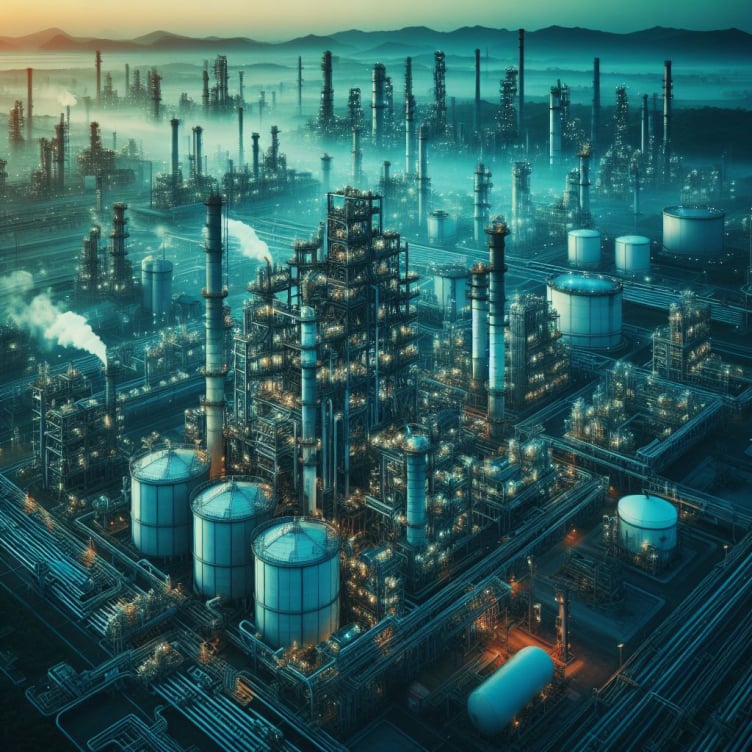One of the most significant aspects of catalyst application is in petroleum refining. In this context, these substances are used to enhance the quality of fuels such as gasoline and diesel. For instance, the hydroprocessing process employs catalysts to remove impurities like sulfur, making the final products more environmentally friendly and compliant with stricter regulations.
Moreover, catalytic cracking is an essential technique in refining. Here, complex hydrocarbon molecules are broken down into lighter compounds, resulting in a significant increase in the production of valuable derivatives like olefins and naphtha. Specific catalysts play a crucial role in this process by promoting the selective breaking of chemical bonds to obtain the desired products.
In the field of polymer production, catalysts are fundamental for polymerization processes. They are used in chain polymerization reactions to create plastics and polymers with specific properties. Metallocene catalysts, for example, are widely employed in the production of high-density polyethylene (HDPE), imparting characteristics such as strength and malleability to the final material.
The continuous quest for more efficient and sustainable catalysts is a priority in the petrochemical industry. New developments aim not only to increase process efficiency but also to reduce dependence on noble metals, often used as catalysts, making methods more economically viable and environmentally responsible.
Furthermore, the application of catalysts in the petrochemical sector is closely related to the pursuit of more sustainable industrial practices. The development of catalysts that minimize waste and decrease the environmental footprint of industrial processes is essential to address contemporary environmental challenges.
In summary, catalysts in the petrochemical sector play a multifaceted role, from improving fuel quality to influencing polymer production. Their impact not only enhances the efficiency of industrial processes but also contributes to regulatory compliance and environmental sustainability, demonstrating the vital importance of these substances in the modern petrochemical industry.
Utilization of Catalysts in Petroleum Refining
One of the main processes where catalysts are widely used is catalytic cracking. This process involves the controlled breaking of heavier hydrocarbon molecules present in crude oil into lighter and more valuable fractions, such as gasoline and diesel. The catalysts used in this context are often zeolites or modified alumina-silica, which help maximize the yield of high-value products from oil.
Additionally, catalysts are crucial in hydrotreating processes, which aim to remove unwanted impurities from petroleum products. Hydrotreating is particularly important to meet stringent environmental standards, as it reduces the concentration of undesired compounds such as sulfur, which contribute to air pollution and have negative impacts on human health. Hydrotreating catalysts typically consist of metals such as molybdenum or nickel supported on an alumina or silica matrix.
The use of catalysts is also essential in catalytic reforming processes, where light hydrocarbons are converted into more complex and higher-octane compounds suitable for high-quality gasoline production. Platinum or palladium catalysts supported on alumina are commonly employed in these processes.
In addition to the mentioned processes, catalysts are also used in various stages of refining, such as isomerization, alkylation, and dehydrogenation, each playing a specific role in the production of refined products. The continuous evolution of research in catalysts significantly contributes to enhancing petroleum refining processes, making them more efficient and environmentally sustainable.
In summary, the application of catalysts in petroleum refining is essential for the efficient production of a wide range of products, from fuels to raw materials for the chemical industry. These catalysts play a crucial role in optimizing industrial processes, contributing to the production of high-quality products and meeting society's increasing demands sustainably and environmentally responsibly.
Bunker Oil
The transformation of bunker oil, a widely used fuel in maritime navigation, is a crucial challenge in the pursuit of more sustainable practices in the naval industry. In this scenario, catalysts emerge as fundamental allies, playing an essential role in mitigating the environmental impacts associated with this type of fuel.
Bunker oil, known for its high viscosity and sulfur content, is one of the main contributors to pollutant emissions in oceans. The application of innovative catalysts has the potential to transform this scenario by promoting the conversion of bunker oil into cleaner and less environmentally impactful maritime fuels.
Specific catalysts can be employed in hydrodesulfurization (HDS) processes to significantly reduce the sulfur content in bunker oil. This transformation not only meets stricter environmental regulations, such as IMO 2020, but also improves air quality in areas where ships operate, reducing emissions harmful to human health and the marine ecosystem.
Additionally, the use of catalysts in catalytic cracking processes can help optimize the composition of bunker oil, resulting in lighter and less polluting end products. This approach not only improves the efficiency of fuel combustion but also reduces emissions of particles and greenhouse gases, contributing to more sustainable navigation.
Ongoing research in catalysts aims to develop more effective and cost-efficient solutions for bunker oil transformation. Constant innovation in these catalytic technologies not only paves the way for compliance with stricter regulations but also drives the naval industry towards more eco-efficient and sustainable practices.
In summary, the application of catalysts in bunker oil transformation represents a significant step towards cleaner and more sustainable maritime fuels. As the naval industry embraces these technologies, the transformation of bunker oil is not only a regulatory necessity but also an opportunity to lead positive change towards more environmentally friendly navigation and commitment to global sustainability.

